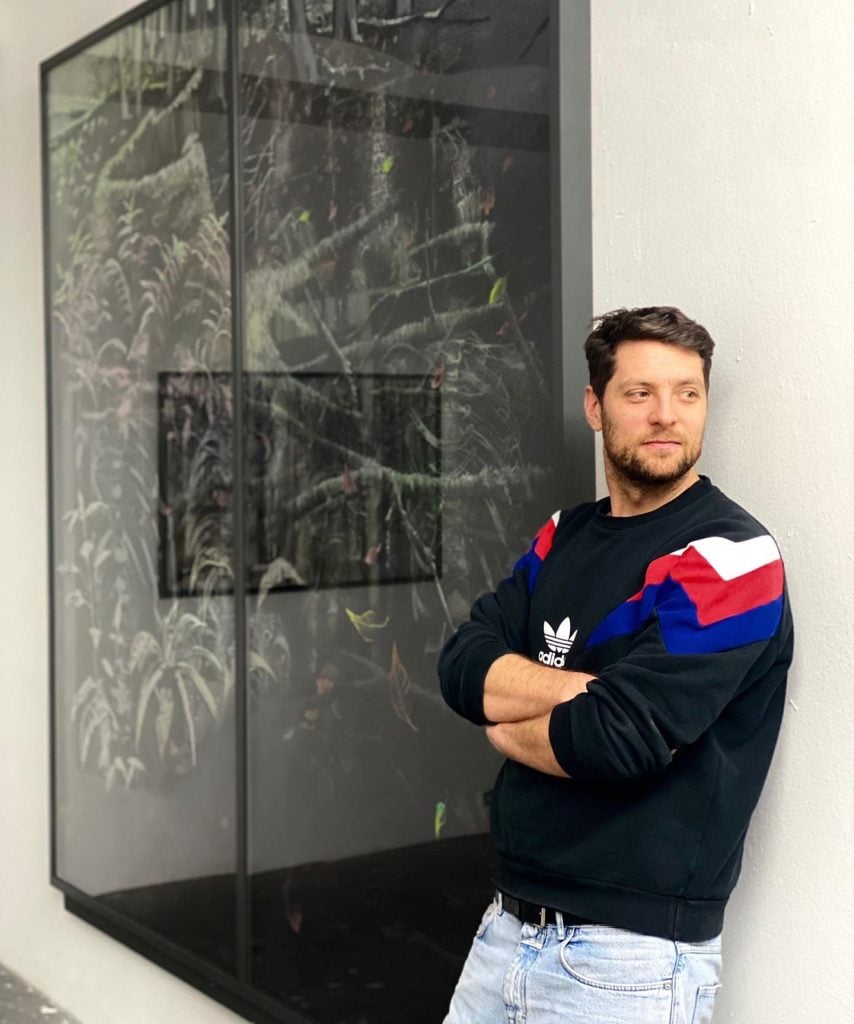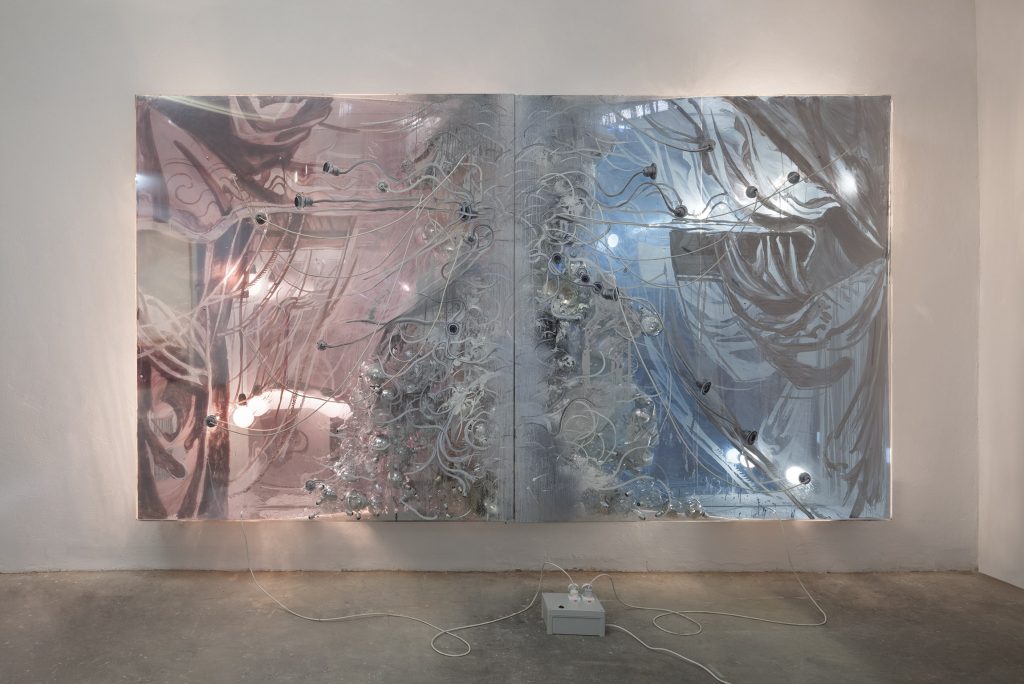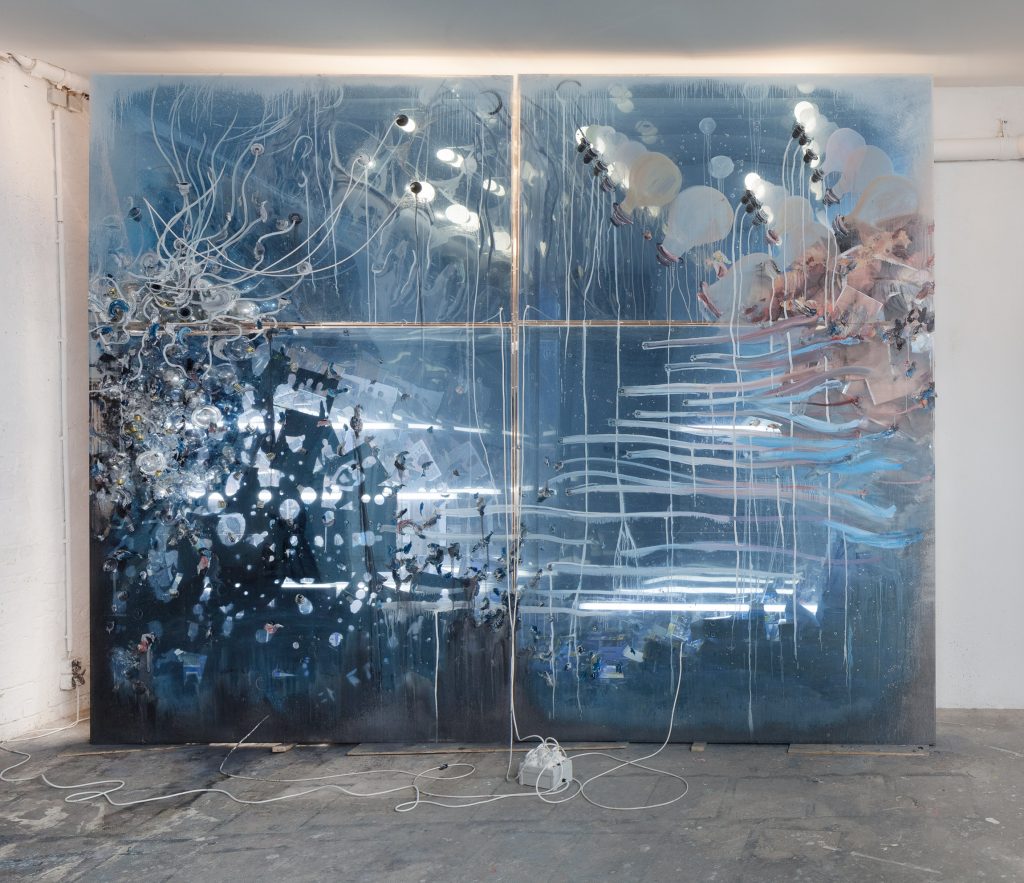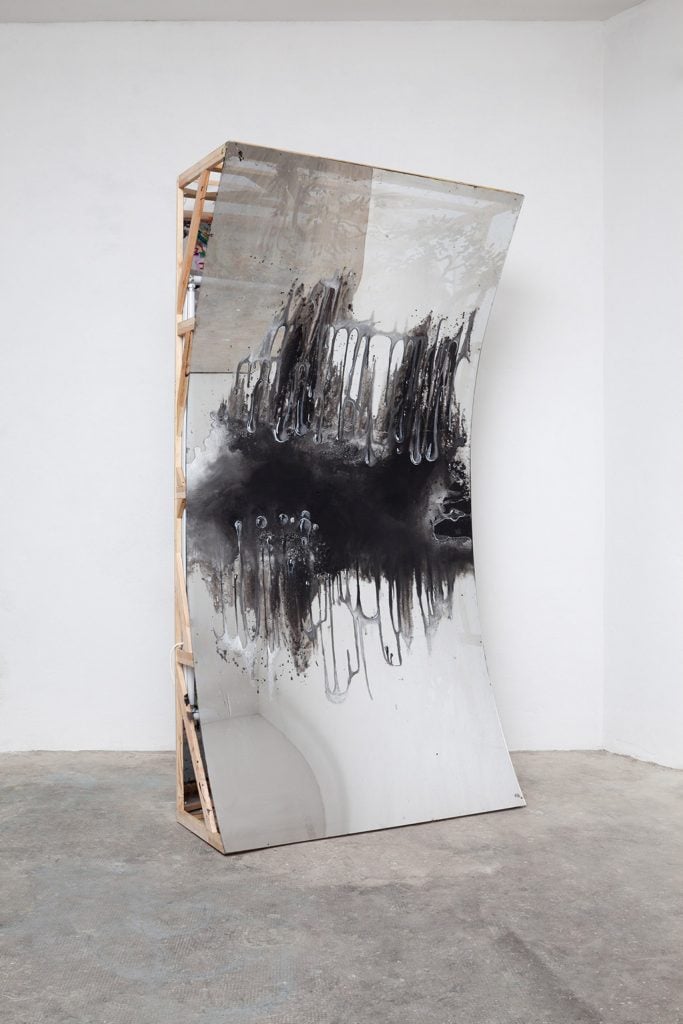Gallery Network
Spotlight: Berlin Artist and Set Designer Philipp Fürhofer Uses Tricks of the Stage to Create Mesmerizing Artworks
The artist will open a new exhibition of work at Galerie Judin in April 2022.

The artist will open a new exhibition of work at Galerie Judin in April 2022.

Artnet Gallery Network

Every month, hundreds of galleries add newly available works by thousands of artists to the Artnet Gallery Network—and every week, we shine a spotlight on one artist you should know. Check out what we have in store, and inquire for more with one simple click.
About the Artist: In 2002, Bavaria-born artist Philipp Fürhofer (b. 1982) moved to Berlin to study art at the Berlin University of the Arts. There, he became acquainted with Hans Neuenfels, an artist known for his work in experimental theater, and with whom Fürhofer shared a passion for opera (he trained as a pianist). Through Neuenfels, Fürhofer got a start designing for regional theaters. Today, Fürhofer, who is represented by Galerie Judin in Berlin, is celebrated for his work designing sets for opera companies, including London’s Royal Opera House and the Dutch National Opera. Alongside his theater career, Fürhofer has also cultivated a studio practice, creating luminous sculptures that are a unique combination of functional lighting, mirrors, and paintings, which come together to form his mesmerizing, trompe l’oeil visions.
Why We Like It: Made with a combination of oil paint on acrylic glass, mirrors, and LED tubes, Fürhofer’s works have an otherworldly effect. His most recent pieces present landscapes and figurative images that conjure up a range of references, from the great Romantic landscape artists of the 18th century to Michelangelo Pistoletto’s mirror paintings, even installations by Yayoi Kusama. The works have a precise, graphic sensibility reminiscent of prints; when they are lit up, they emit a kind of eerie and icy opulence. Some sculptures have timers that turn their lights on and off, creating a kind of dance in which the viewer must reorient themselves in order to view the works. Fürhofer has said that his technique was partially inspired by an extended hospital stay for cardiac problems in his 20s—looking at X-rays of his chest, he became fascinated by the images’ qualities of transparency and opacity.
What the Gallery Says: “Fürhofer’s arrestingly beautiful artworks are multi-layered and entrancing. They function as light boxes, but also as paintings. Depending on whether the light is turned on or off, the contents are either illuminated or shrouded for the viewer. In the works where the light rhythmically switches on and off via a timer, the viewer has to concentrate in order to consume the information relayed in these alternating states. This game interferes with the more straightforward act of looking that a viewer might adopt when perusing a traditional painting, instead placing them in a much more active role where they are encouraged to move around the work and adopt different positions of engagement.”

Philipp Fürhofer, Paying Homage (2015). Courtesy of Galerie Judin.

Philipp Fürhofer, Seduction (2015). Courtesy of Galerie Judin.

Philipp Fürhofer, Wolfsschlucht, 326 Watt (2013). Courtesy of Galerie Judin.